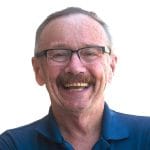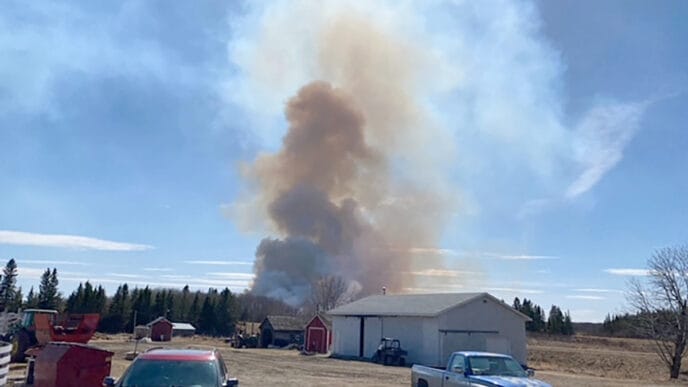Members of the Prairie Thunder Boys drumming circle are practising every Wednesday at Jack Kemp Community School for the upcoming powwow season. Geoff Lee Meridian Source
Drumming instructor Winddancer Waskewitch with the Lloydminster Public School Division is teaching Indigenous kids how to put more wow into powwows.
A group of learners called the Prairie Thunder Boys is preparing for an upcoming inter-school powwow at Lakeland College with a weekly practice at Jack Kemp Community School.
“Every Wednesday we teach kids to sing certain songs like the drum song, a crow hop song, the Treaty 6 Flag song, songs that are sung at every powwow. These songs are the basics to learn as a powwow singer,” said Waskewitch.
“Based on how much they show up and show commitment to learning powwow, then we take them to a mini powwow.”
The inaugural inter-school Heart of Treaty 6 Reconciliation Inter-school Powwow took place outdoors at Lakeland last May.
The Prairie Thunder Boys have been practising for two years under the leadership of Waskewitch.
“I wanted them to know how to start a song, when to stop, when to use their voice and how to respect the drum and each other,” he explained.
“They can become more of who they are. That’s what the drum teaches us. It teaches us to stick together and help each other out. As much as we sing, we’re learning how to be young men as well.”
Powwows are also a social gathering where non-Indigenous people can learn about Indigenous Peoples and their history through the art and storytelling of song and dance.
“There is a whole series of songs from different tribes,” said Waskewitch.
He teaches students timing, appropriate songs and learning the songs they sing at the powwows.
Gage Chocan is a senior member of the Prairie Thunder Boys who’s been powwow drumming and singing since Grade 8 and loving it.
He’s in Grade 11 now at Lloydminster Comprehensive High School and says it means a lot to him.
“I like connecting with my culture, hanging out with these guys and I like learning new songs. Singing just makes me feel good,” he said.
Chocan says he’s looking forward to the inter-school powwow at Lakeland and some other powwows this summer.
“It’s a really easy way to stay with the culture and it’s fun. That’s what I like about it.”
Powwows are also for healing.
“We are all healing and praying for ourselves and our loved ones because we are all going through our own struggles at home. When we come to a powwow, it’s a place for us to heal and help to uplift each other,” said Waskewitch.
Farron Chamakese, who is helping Waskewitch with powwow teachings, says his grandfather grew up in the residential school era after the Indian Act of 1876 outlawed Indigenous ceremonies.
“Throughout that time, my ‘grandfathers’ showed resilience through drumming,” he said.
Chamakese teaches the Prairie Thunder Boys the meaning of powwow is the process of a boy becoming a man.
“Throughout that period is when we are learning about things like these are our ceremonies, our drumming,” he said.
“We know the history of what our ancestors went through, and because of that, we try to keep on to it and teach, so when these boys reach 60 years old they will have something to teach the next generation.”
















